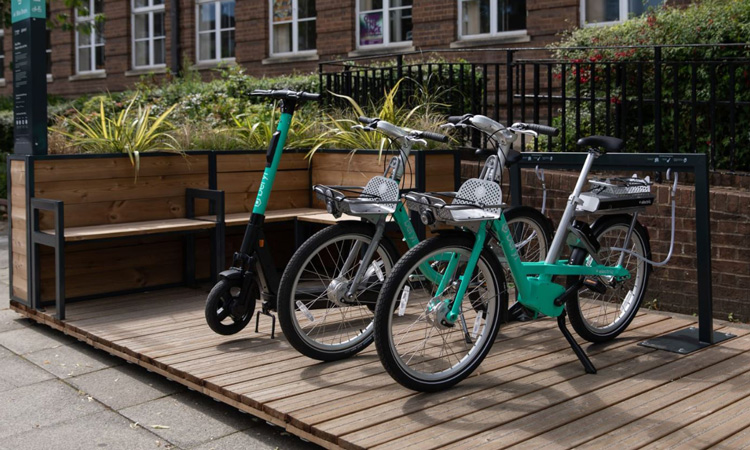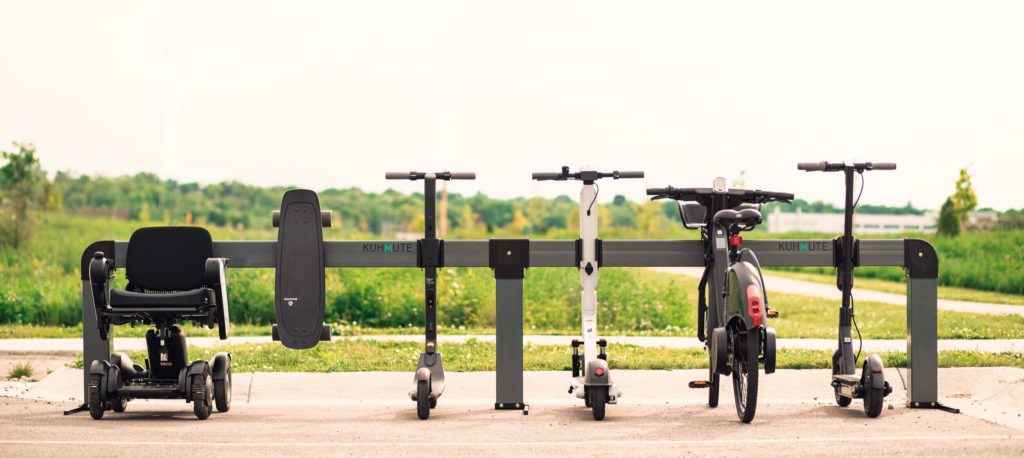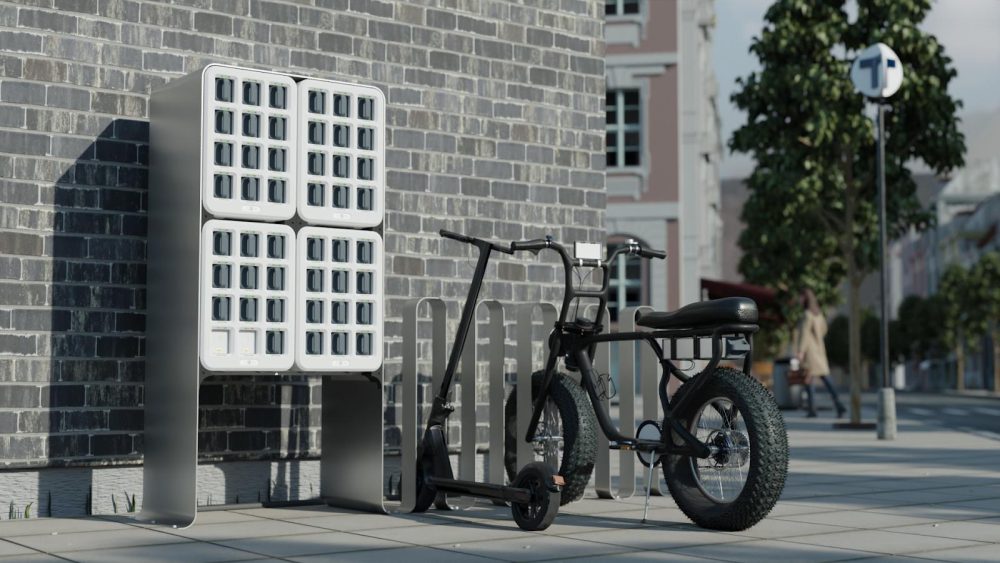Technology
Multimodal services and battery charging management
20 October, 2020
The urban mobility usage needs are infinite, and shared mobility operators have, therefore, to try to answer most of it by adapting their offer. Widening the range of vehicles is one way to do so, but it comes with multiples hurdles, and battery charging management is a major one.
In order to optimize the service operation, you will require automatic charging or vehicle agnostic batteries. It sounds easy but charging stations are difficult to install in dense urban environments, while scooters, bikes, mopeds, and cars need different battery capacity.
E-scooters and e-bikes weigh as much as one or the other and allow the use of the same batteries or at least the same battery characteristics. Solution suppliers and operators are currently trying to develop shared-proof solutions to power e-scooters + e-bikes sharing solutions.
The need is already here!
Multiple operators are already operating both e-bikes and e-scooters. Following the free-floating bike-share wave, many operators surfed the next: scooter-share. Lime was (one of?) the first to operate both e-scooters and e-bikes, but Lime-E’s have been replaced by higher quality Jump bikes since the takeover from Uber. Pony or Gotcha also adopted scooters after bikes… but before e-bikes.

Others developed their e-bike and e-scooter sharing offers in parallel, allowing an easier integration in one mobility service. Beryl, Helbiz, or Yego are now able to provide both vehicles.
But as previously highlighted, operating a multimodal electric mobility service comes with the challenge of battery charging management. What are the solutions available?
Docks
Innovation is happening both with dock-based and dockless solutions. The arrival of shared scooters has been a catalyst for charging/locking stations, which took advantage of the bad parking and poor charging efficiency of the early days. Swiftmile or Charge managed to provide additional services to cities and operators by implementing such stations though limited to charging so far.
But you have to look elsewhere to find multimodal options. Kuhmute has developed a multimodal charging and locking station, now able to host e-skateboards, e-scooters, e-bikes and e-wheelchairs alike. Different shared-proof e-bikes (from Acton and GenZe) and e-scooters (Acton, Okai, Segway) are compatible with the system.

Duckt, an Istanbul-based company, was born with the goal to develop a universal e-scooter charging and locking dock, thanks to a ring that can be fitted to most vehicles. Having succeeded in this first goal, they worked on the e-bike solution and released their first multimodal station on Istanbul’s streets earlier this year.
Historic bike-sharing solution providers are also working on closing the gap with the development of scooter sharing. During the 2020 NABSA Conference “Together we keep moving”, PBSC unveiled its multimodal station, able to host e-scooters with the same charging and locking mechanism as its renowned bikes. And I can confirm that some competitors are working on a similar solution.
Battery swap stations
What if you are running a multimodal dockless service? The challenge lies in the battery design and characteristics that have to fit into both vehicles not to double the battery-related operation processes, as well as the supply and recycling ones.
Jump has been the first to reveal its solution using the same battery both for the bike and scooter back in March 2020, together with a charging kiosk. But with the investment deal between Lime and Uber, only ruins of the Jump R&D team remain, and it is quite unlikely that the solution will hit the streets one day.

Okai, the leading company in shared scooter supply, has been working on a similar solution. The evolution of the best-selling ES400 scooter, showcased by Tier during an event in London, hosts a battery with a large handle that can also be fitted on the EB100 e-bike. If Beam is the first to operate it in Sydney, AUS, the two vehicles are not being operated in the same market yet.
Teleport Mobility is trying to go a step further, as the Swedish startup aims to set the new battery standard for micromobility, that will be available as an open-source design. Tests are underway, and should lead to pilots in early 2021.

In addition, to facilitate the battery charging management for multimodal services, providers are willing to cut down on the battery charging operational costs by incentivizing users to swap the batteries at dedicated stations themselves. Following the path of the successful Gogoro model for e-mopeds in Taiwan, Okai and Teleport have designed battery-swapping stations that could redefine what we call station-based services.
Solutions are here, but no large scale (if any?) mixed e-bikes and e-scooters sharing service has launched with a unique battery charging/swapping solution. Would it be with dock-based or free-floating options, it seems that the future of profitable shared micromobility services requires urban furniture. Let’s imagine that a standardized Gogoro-style solution emerges, available both for personal or shared vehicles… That will surely catalyze the development of micromobility usage in cities!